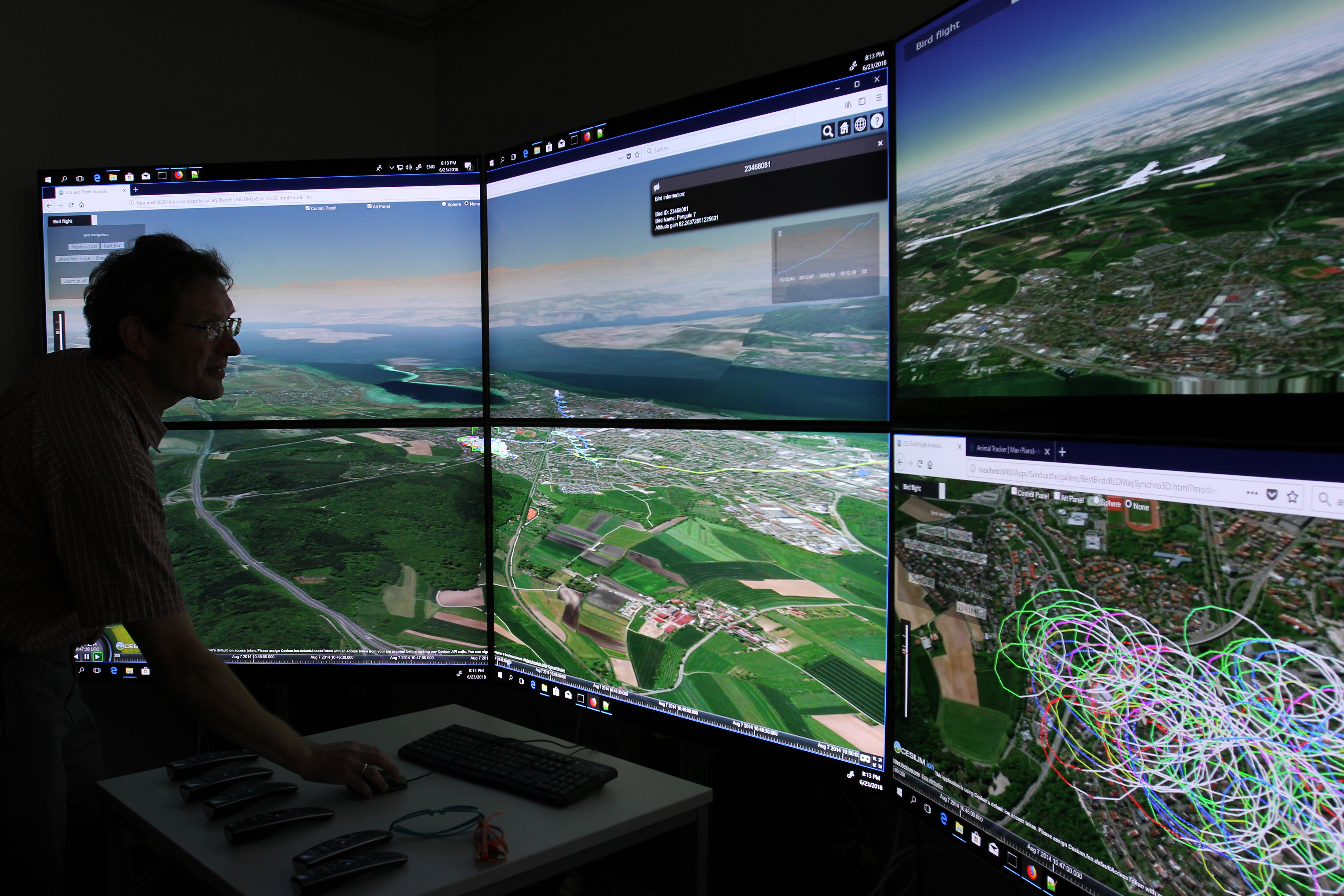
CRC-TRR 161 on visual computing approved for second funding period
Joint research carried out by the Universities of Konstanz, Stuttgart, Ulm and LMU Munich on the topic of “Quantitative Methods for Visual Computing” to receive additional funding in the amount of approximately eight million euros
The transregional Collaborative Research Centre (CRC-TRR) 161 “Quantitative Methods for Visual Computing” has been approved for another four years and is set to receive additional funding in the amount of approximately eight million euros from the German Research Foundation (DFG). Researchers specializing in computer science, psychology, mathematics and linguistics work together to uncover new ways of using the computer-assisted processing and representation of image information for the purpose of determining and measuring the quality and applicability of data and images. The joint research project is coordinated by the Universities of Stuttgart and Konstanz and its speaker is Professor Daniel Weiskopf from the Visualization Research Center at the University of Stuttgart. Also involved are LMU Munich and Ulm University.
Visualizing information
CRC-TRR 161 focuses on visual computing, the computer-assisted processing and representation of image information. Among other things, the research teams investigate how humans can make better use of computer technology and the visual representation of information. During the past four years of the first funding period, the approximately 40 researchers involved in the joint research project addressed a range of questions, including how movement in video recordings can be better detected and analysed, which is important for applications in the domain of self-driving cars. They also explored computer avatars and how realistic these should be in computer applications.
Support for the Konstanz-based top-level research hub in the area of “Collective Behaviour"
During the second funding period, the researchers aim to both continuously enhance and improve the previously developed approaches and methods and to integrate new applications and current technological advances into their research. Some of the questions they intend to address include the following: Should a computer system be able to adapt to individual user behaviour? How can user behaviour be predicted using artificial intelligence? How can virtual reality approaches be used to analyse large data sets? And is it possible to allow users to switch seamlessly between real and virtual worlds?
“We are planning to increasingly explore applications that demand and utilize augmented and virtual reality technologies”, explains Vice Speaker Professor Oliver Deussen from the University of Konstanz’s Department of Computer and Information Science. “Machine learning and artificial intelligence will also play a major role”. The insights gained by CRC-TRR 161 in these areas also feed into the research carried out by the new Konstanz-based Cluster of Excellence “Centre for the Advanced Study of Collective Behaviour” to which both Oliver Deussen and a number of other principal investigators involved in the transregional Collaborative Research Centre contribute.
The Cluster of Excellence “Centre for the Advanced Study of Collective Behaviour” is funded through the Excellence Strategy of the German federal and state governments. It is part of a larger Konstanz-based research centre in the area of “Collective Behaviour”, which uses globally unique data-based technologies to study the behaviour of animal and other collectives. Besides the Cluster of Excellence, this research centre comprises the forthcoming “Centre for Visual Computing of Collectives (VCC)” and the recently founded Konstanz-based Max Planck Institute for Animal Behavior, a new and independent research institution that will replace the Radolfzell subinstitute of the Max Planck Institute for Ornithology. It will be located in the immediate vicinity of the University of Konstanz.
The Collaborative Research Centres supported by the DFG are installed as research institutions at the universities for a period of up to 12 years. A CRC-TRR extends to several research locations. To date, the University of Konstanz has hosted three Collaborative Research Centres. The second funding period for CRC-TRR 161 “Quantitative Methods for Visual Computing” will begin on 1 July 2019.
Facts:
- CRC-TRR 161 “Quantitative Methods for Visual Computing” approved for further funding by the German Research Foundation (DFG)
- Funding period: four years; funding amount: approx. eight million euros
- Second funding period starts 1 July 2019
- Coordinated by the Universities of Stuttgart and Konstanz, with the participation of Ulm University and LMU Munich
- Speaker: Professor Daniel Weiskopf, Visualization Research Center at the University of Stuttgart, Phone: +49 711 685-88602, email: daniel.weiskopf@visus.uni-stuttgart.de
- Vice Speaker: Professor Oliver Deussen, Department of Computer and Information Science at the University of Konstanz, Phone: +49 7531 88-2778, email: oliver.deussen@uni-konstanz.de
- Experts from computer science, psychology, mathematics and linguistics work together to uncover new ways of using the computer-assisted processing and representation of image information for the purpose of determining and measuring the quality and applicability of data and images
- Support for the Konstanz-based Cluster of Excellence “Centre for the Advanced Study of Collective Behaviour” and the internationally leading research centre in the area of “Collective Behaviour” on topics such as augmented and virtual reality as well as machine learning
Note to editors:
A photo is available for download here: https://cms.uni-konstanz.de/fileadmin/pi/fileserver/2019/Bilder/daten_interaktiv_darstellen.jpg
Caption: How can complex data be represented in an interactive way?
Copyright: Claudia Widmann, University of Konstanz
Contact:
University of Konstanz
Communications and Marketing
Phone: + 49 7531 88-3603
Email: kum@uni-konstanz.de
